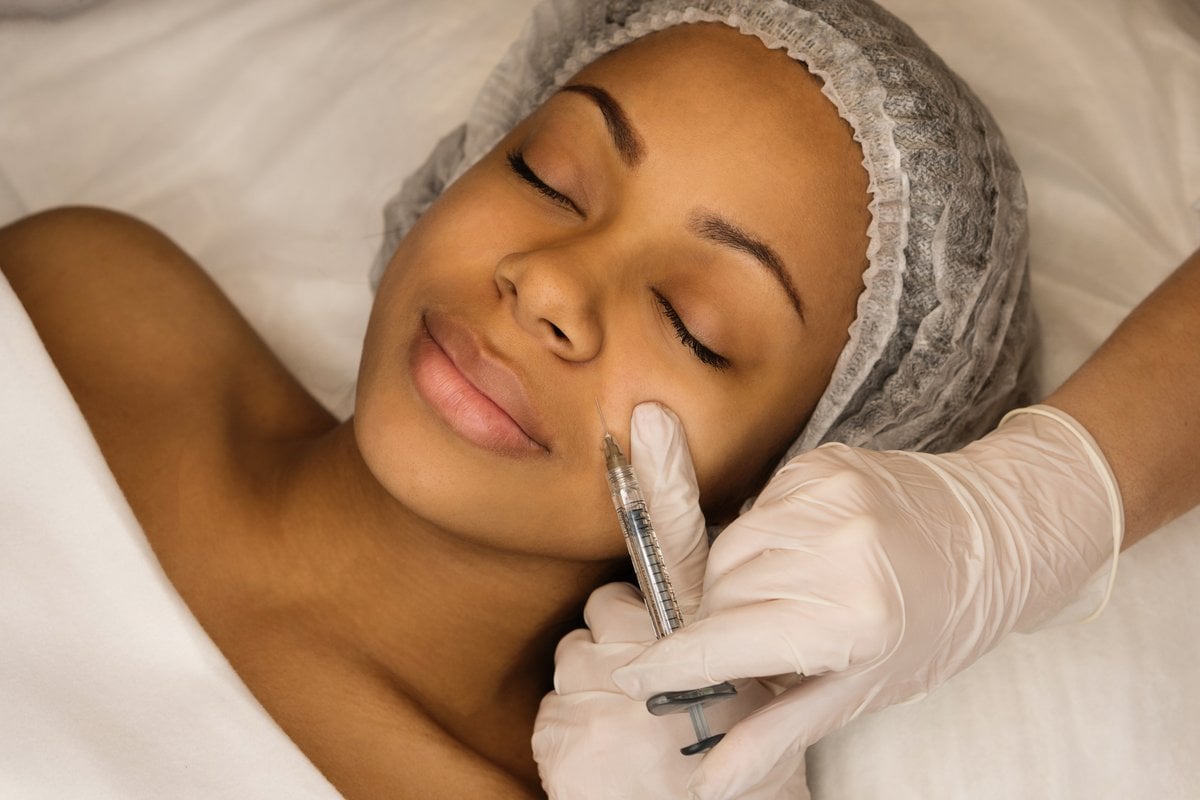
The pandemic has changed how humans look. Our faces have never been more covered, and yet we've seemingly never been more concerned with how they look.
In 2020, there has been a significant boom in cosmetic services. In fact, one doctor said his clinic saw a 300 per cent increase in inquiries for facelifts and rhinoplasty during Australia's first lockdown period.
In May, Mamamia spoke with Dr Naomi McCullum who runs cosmetic clinic The Manse in Sydney. She explained the increased demand for procedures for the face, neck and eyes comes from people having spent a lot of time looking at their face in lockdown.
“We have gained a lot of new patients. I think a lot of people spent quarantine on Zoom, checking out the mirror, and googling cosmetic procedures,” Dr Naomi told Mamamia.
Mamamia's daily news podcast 'The Quicky' also spoke to Dr Amiri Sanki from the Board Member of the Australasian Society of Aesthetic Plastic Surgeons, who confirms the demands for these procedures has increased dramatically this year.
"COVID has been a really interesting, introspective time for people and that introspection has brought them to looking at their own health and how they're looking and feeling," Dr Sanki explains.
"I think people are actively trying to feel better during lockdown and part of that is plastic surgery because plastic surgery is a way for people to feel more confident... and to help people focus on their emotional happiness and wellbeing."
Listen to The Quicky, Mamamia's daily news podcast. Post continues below.
But Dr. Sanki adds that people, especially those in their teens and early 20s, need to be aware of the potential risks and should ensure they are receiving the right advice.